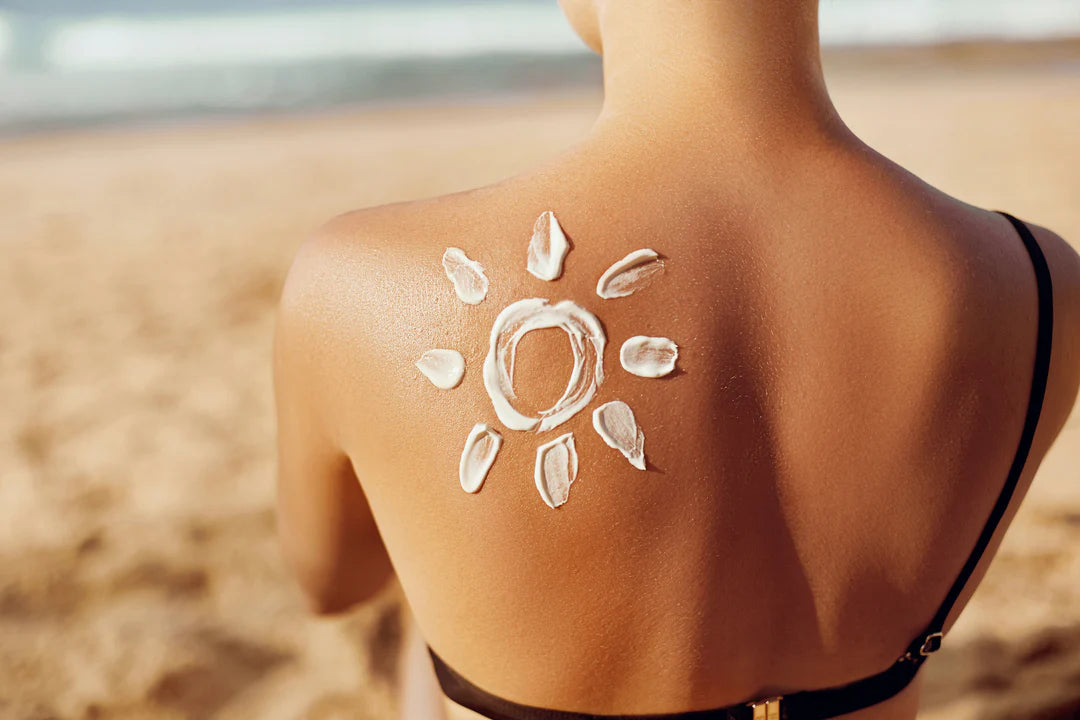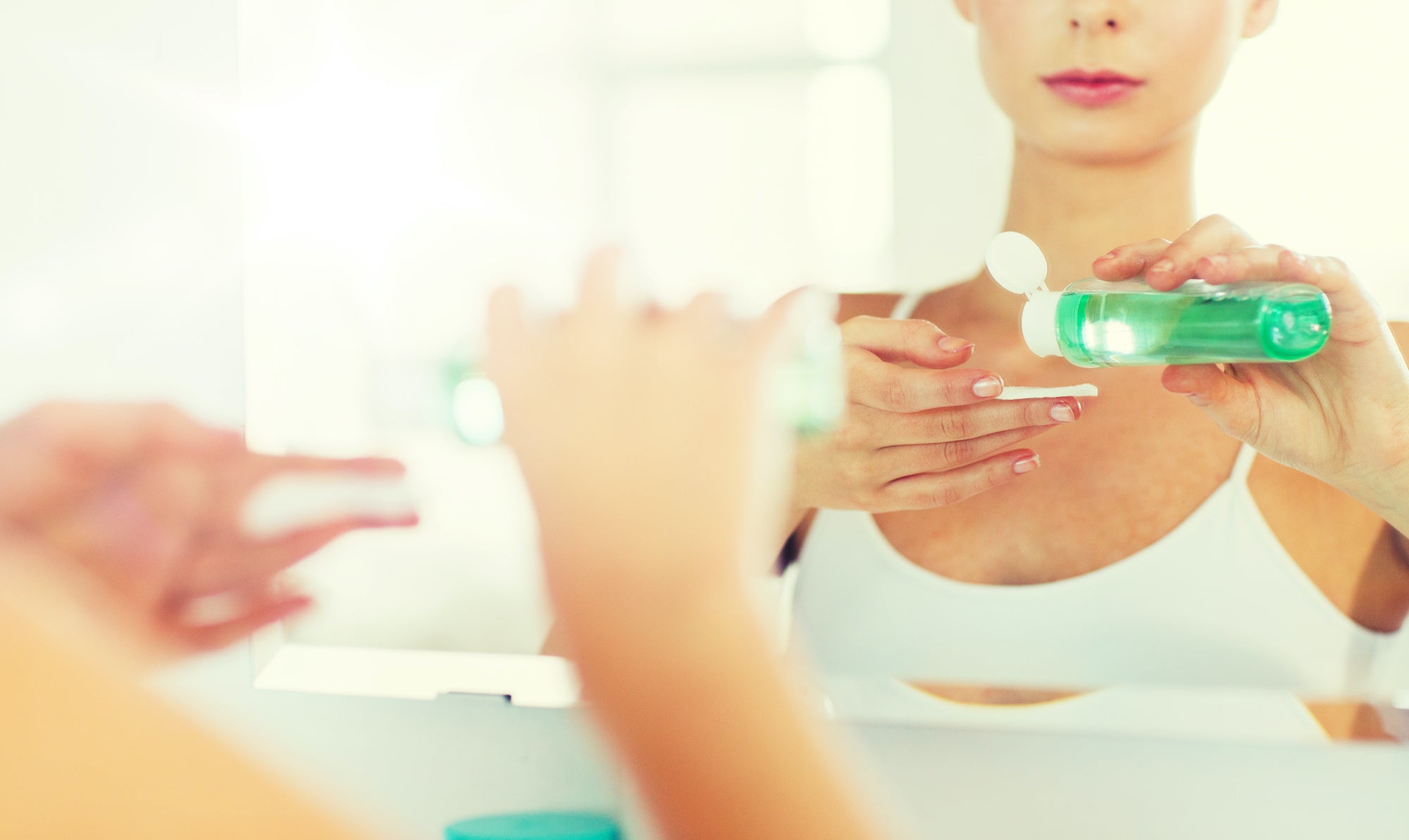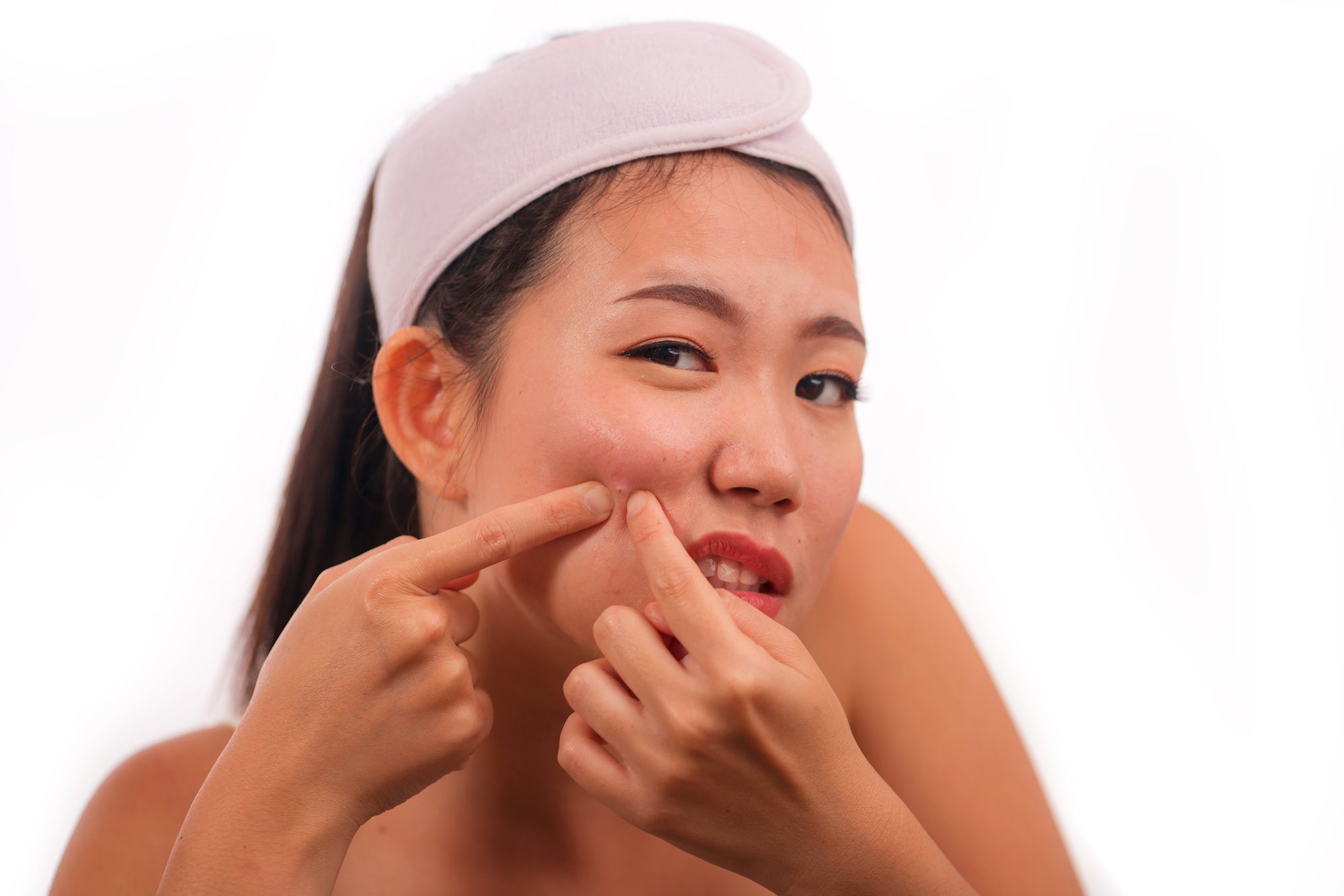
Does Tanning Help Acne? How Sun Transforms Your Skin
It’s incredible how things bloom in the sun, and I don’t just mean plants. Certain people seem to come alive when the sun is out, and want to spend all their time outside soaking up rays. You know who I’m talking about!
Then there are indoor people, who wander around town hiding under parasols. (I can relate.)
Seriously though, I’m pretty lucky. Even though my family tree is full of pasty white people — Ireland, England, and Poland aren’t exactly known for their robust melanin — some genetic wizardry inherited from my father means that I burn once, then tan for the rest of the summer.
It also gives me bragging rights over my poor husband. He’s originally from Dublin and burns like unmonitored toast beneath the scathing Atlanta sun.
And although I’ve always been more of an autumn enthusiast than a summer child, there’s one glorious side benefit of sun exposure that I’ve enjoyed since my teen years:
Tanning shrinks my breakouts.
...Or so I thought.
If, like me, you look forward to the improved clarity of a sun-kissed complexion, brace yourself for a rude awakening. Because we might love the sun, but the sun doesn’t always love us.
Tanning For Acne
No one told me that the sun would help my breakouts. I came to that conclusion through my observations. If you’ve had the pleasure of simultaneously battling both acne and a sunburn, you may have noticed the same curious result:
Your blemishes seem suddenly smaller, and less obvious.
And the benefits seem to keep on coming. Looking in the mirror after a day at the pool, you may notice that your face seems less oily. And if you have a complexion that tans, your new pool tan may disguise redness and blemishes.
Then there’s the suggestion that sunlight kills harmful bacteria on your skin. That’s got to help with breakouts, right? Bacteria are a central part of the problem!
And of course, there’s the common recommendation: get enough sunshine to absorb vitamin D.
Taking all this evidence together, it’s no surprise that so many people think that getting a tan is the answer to their acne struggles. Unfortunately, the truth is not quite so sunny.
Sunlight and Your Breakouts
At first, sun exposure can make your complexion seem clearer and more even, but this is a short-term illusion, my friends. In the long term, all that sunshine can make your breakouts even worse!
First, that miraculous decrease in oiliness triggers a response from your sebaceous glands. To rehydrate your skin, they start pumping out extra sebum (skin oil) to compensate. So after a few days, your face is greasier than ever!
All that drying (or worse, burning) sunlight also results in an influx of dead skin cells. If you have acne-prone skin, you’re probably battling excess skin cells already, so the last thing you need is extra help.
When these excess cells mix with the brand-new oil slick across your face, they all get stuck together into sebum plugs that clog your pores, paving the way for more acne breakouts.
To make matters worse, sun exposure can cause healing blemishes to leave behind dreadful souvenirs like dark spots and scarring. So even though the breakout may be gone (for now), you’re never really free of it!
And if you’re on any kind of prescribed medication for your skin problems, you may be at extra risk. Many acne medications and facial treatments make your skin sensitive to the sun’s UV rays, causing sunburns to appear extra fast and extra toasty.
Ultimately, if you try to treat your acne-prone skin with excessive sun exposure, you’ll end up doing more harm than good! And that’s not even addressing the next issue...
Premature Aging
Not only can sun damage contribute to your breakouts, but it can make “Guess how old I am!” into a dangerously loaded question.
Too much sunlight can break down the collagen in your face, decreasing your skin’s elasticity and leading to premature sagging and wrinkling.
Repeated sun exposure can also thicken your skin over time. Not only can this make you look like a leathery old handbag, but it also makes deep cleansing difficult and interferes with your body’s ability to efficiently shed skin cells.
A buildup of skin cells and sub-par cleansing? Add that to acne-prone skin, and you could end up looking simultaneously like an aging grandma and a spotty pre-teen. NOT IDEAL.
As a final insult, the loss of elasticity from collagen can also make your pores appear larger. Just in case wrinkles and acne weren’t bad enough.
UV Rays and Skin Health
You’ve probably heard about the health dangers of UV rays. It’s shouted from the rooftops by everyone from the CDC to cosmetics companies. But not everyone understands why and how UV rays are so destructive to our skin.
When you forget sunscreen at an outdoor concert and come home with a tan (or a sunburn), here’s what happens.
Your skin registers the radiation from your excessive sun exposure. It reacts by releasing melanin, aka the pigment that determines your skin tone and protects you from UV damage.
This sun-released melanin causes tanning among people with lighter complexions, but the bad news: tanning isn’t a good sign. It means your skin is already damaged.
And burning? That means that your defensive layer of melanin has been completely overwhelmed.
Unable to absorb all of the UV rays you’re soaking up, the cells of your skin become fatally damaged and essentially self-destruct. This results in the inflammation and peeling skin that’s so common with sunburns.
Sometimes, though, those damaged skin cells don’t die. Instead, they mutate and spread, causing potentially life-threatening skin cancer.
How quickly and severely you react to sun exposure is connected to your natural skin tone.
If you’re like my pale Irish husband, your baseline skin tone has a very low concentration of melanin and provides less protection against UV rays.
If you’re an ebony goddess like friend and fellow Glowteam writer Shiloh Garcia, you have a much higher concentration of melanin and better resistance to sun damage.
But — and this is important — UV RAYS AFFECT EVERYONE. Dark skin or light, you can still contract a sunburn, and you’re still at risk of health issues. Skin cancer doesn’t discriminate!
The Tanning Bed Alternative
Some people love hitting up tanning salons. There are legions of tanning devotees who insist that it’s a safer alternative to laying out in the sun.
I hate to disagree, but…
They’re wrong.
As the American Academy of Dermatology so bluntly puts it, “Tanning beds are NOT safer than the sun. ...There’s no such thing as a safe tanning bed, tanning booth, or sun lamp.”
Dang, tell us how you feel.
They have a point, though. Just like regular sun exposure, tanning beds can harm your skin, resulting in extra sebum, dead skin cells, a leathery complexion, age spots, premature wrinkles...the whole shebang.
Using tanning beds also increases your risk of developing melanoma — the deadliest form of skin cancer — by a terrifying 75%. So not worth it.
Pro Tips to Protect Your Acne-Prone Skin
Believe me, I understand how the frustration of acne can drive a person to desperate measures. Especially if it’s a problem that you’ve been dealing with for years!
But instead of risking unsafe sun exposure to treat your breakouts, focus on an acne-fighting skincare routine and use these tips to protect your skin from the ravages of UV radiation.
- Wear sunscreen ALL THE TIME. (Even when it’s cloudy. Even if you have a dark complexion. Even if you’ve never had a sunburn in your life, Shiloh.) We recommend seeking out a water-based sunscreen to avoid pore-clogging oils. Aim for an SPF of at least 30.
- Don’t try to absorb vitamin D from sunlight. You can get plenty through diet alone. It’s the BEST way to ensure your vitamin D intake! For extra help, check out our comprehensive list of 99 Clear Skin Foods for a cheat sheet of the best vitamin D-rich ingredients!
- Don’t DIY light therapy. If your acne is stubborn or severe, and you’re desperate to try a light-based solution, don’t just lay on a beach towel in your backyard. You’ll soak up dangerous UV rays and probably get walked on by fire ants. Instead, schedule an actual light therapy appointment. Modern light therapy uses no UV rays and is much safer than sun exposure.
- If you do end up with a sunburn, be careful about the products you use on your scorched and sensitized skin. Choose a gentle cleanser like our Radiant Cleansing Nectar, which clarifies skin while reducing painful inflammation. Follow with a soothing, rehydrating moisturizer like our Flawless Nourishment Cream, rich with calming camellia oil and healing vitamin C.






